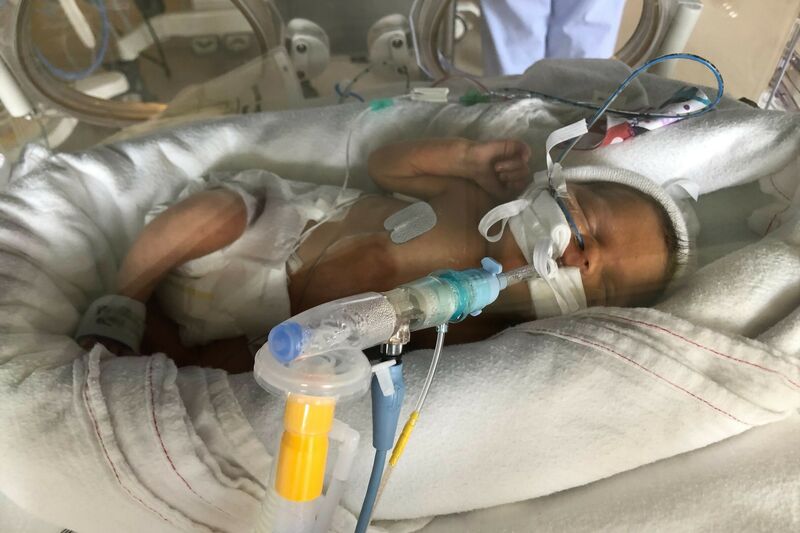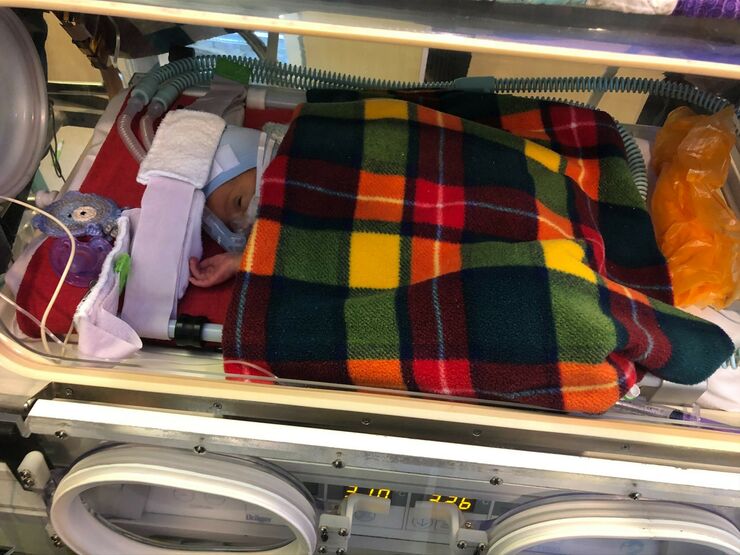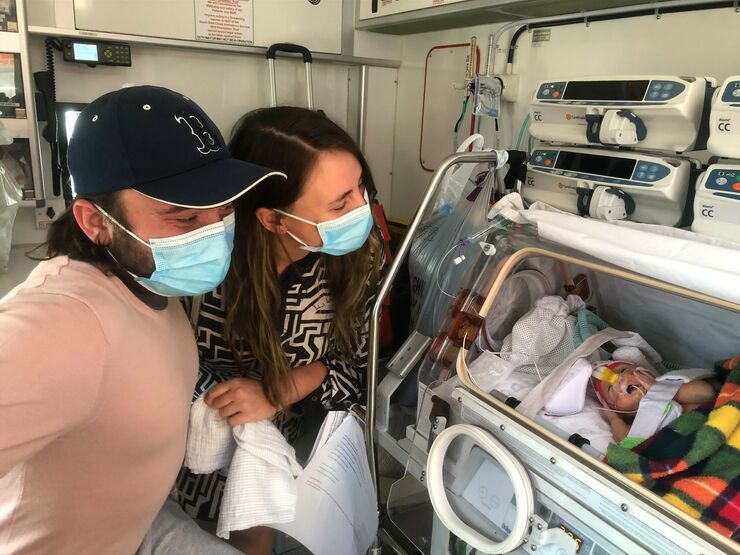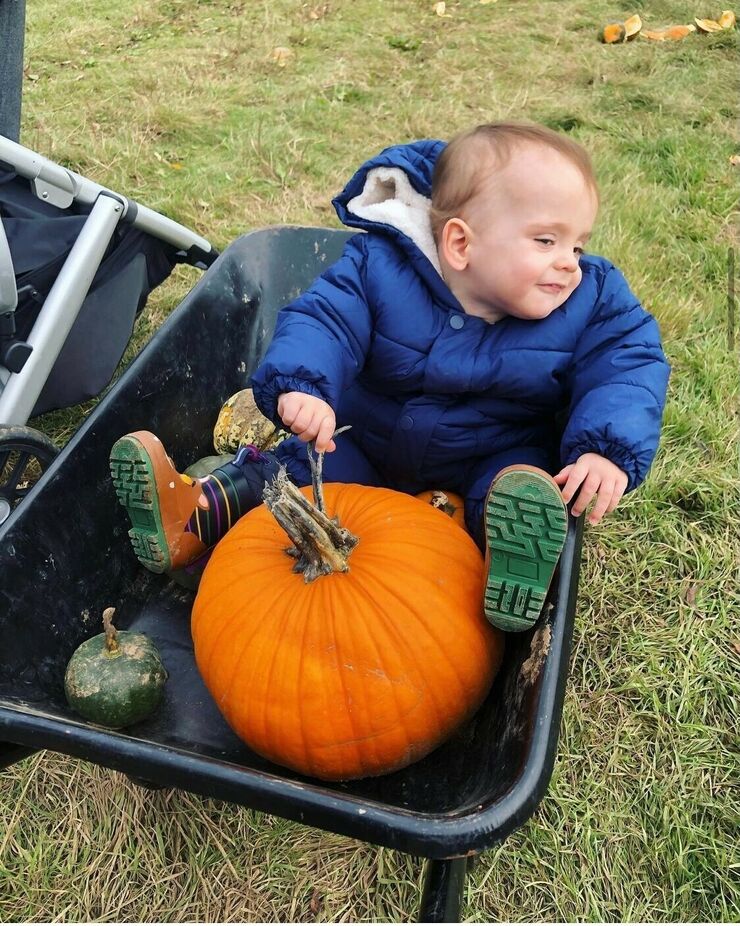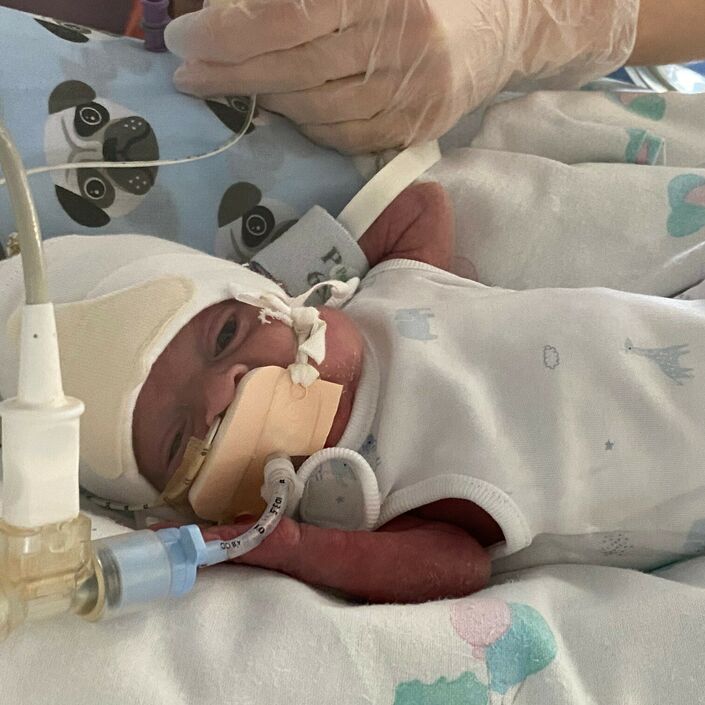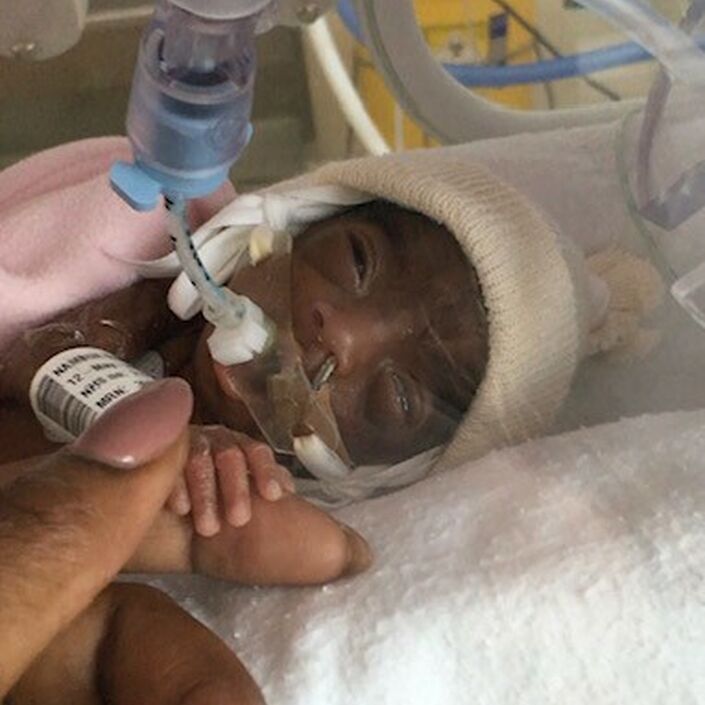It’s crazy that today at one years old, Leo’s favourite things are flashing lights and saying ‘beep’. I was dressed in a face mask, an apron and gloves, I asked the nurse if I could touch him. He looked so small and fragile, he was covered with wires and tubes. I felt completely helpless - it didn’t feel natural - I didn’t know how to care for my own baby. I began to cry, “don’t cry” I was told because “stress can affect your breastmilk.” I thought to myself, I’m not planning to breastfeed… I had bottles and formula already bought at home. The nurse told me that breast milk is best for premature babies, so I went off to the ‘expressing room’.
Here I was sat beside five other women, half undressed trying to figure out how to use a breast pump. I had an emergency c-section a little over 24 hours ago, lost almost two litres of blood, however, I didn’t even have time to acknowledge the pain from that.
“Wow that’s amazing for your first time”, I was encouraged by a complete stranger sat next to me, as I managed to get 10ml of breastmilk.
“I miss the colostrum stage, mines just white now”, she said. I hadn’t even thought about how long Leo might need to stay; I was more concerned if he was going to live till the next morning.
I asked her if she’d be in hospital long - “five months, chronic lung disease” she replied. I hope Leo doesn’t have that I thought to myself, completely unaware of what it was, I don’t want him to be here for five months.
